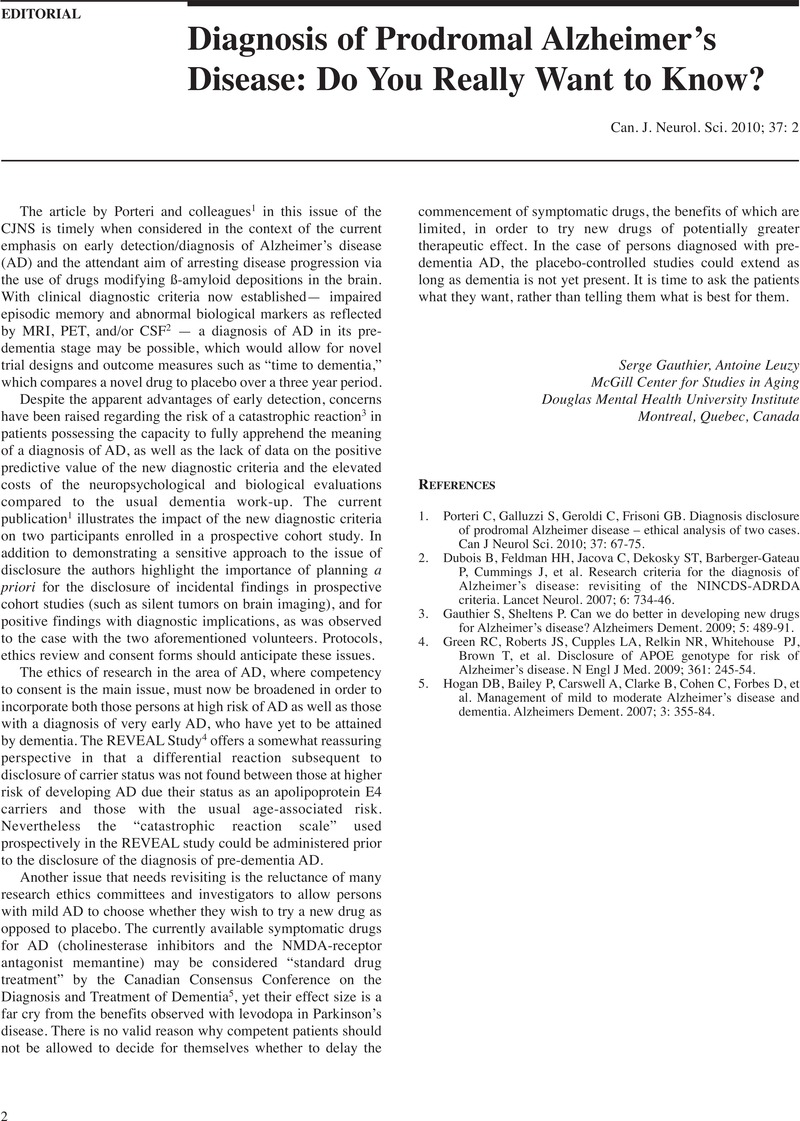Crossref Citations
This article has been cited by the following publications. This list is generated based on data provided by Crossref.
Gauthier, Serge
Garcia, Angela
Sano, Mary
Robert, Philippe
Senanarong, Vorapun
Woodward, Michael
and
Brodaty, Henry
2010.
Priorities for research consortia on Alzheimer's disease.
Alzheimer's & Dementia,
Vol. 6,
Issue. 4,
p.
359.
Leuzy, A.
Ashton, N. J.
Mattsson-Carlgren, N.
Dodich, A.
Boccardi, M.
Corre, J.
Drzezga, A.
Nordberg, A.
Ossenkoppele, R.
Zetterberg, H.
Blennow, K.
Frisoni, G. B.
Garibotto, V.
and
Hansson, O.
2021.
2020 update on the clinical validity of cerebrospinal fluid amyloid, tau, and phospho-tau as biomarkers for Alzheimer’s disease in the context of a structured 5-phase development framework.
European Journal of Nuclear Medicine and Molecular Imaging,
Vol. 48,
Issue. 7,
p.
2121.



